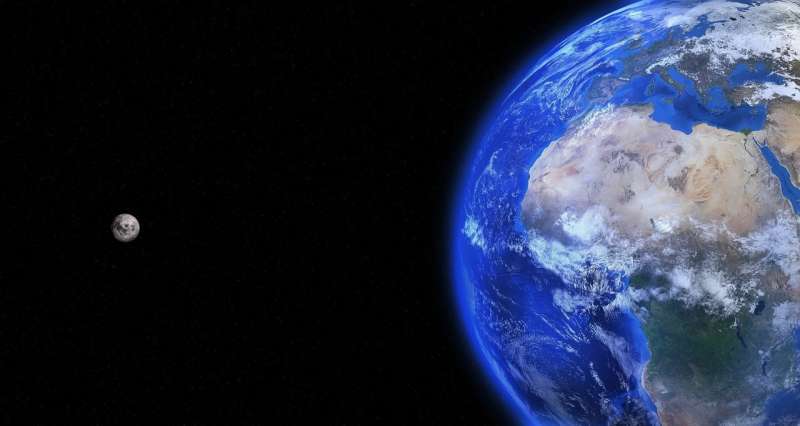This article has been reviewed according to Science X's editorial process and policies. Editors have highlighted the following attributes while ensuring the content's credibility:
fact-checked
reputable news agency
proofread
Historic UK rocket mission set for liftoff

Final preparations were under way Monday for the first rocket launch from UK soil, catapulting it into the "exclusive" club of nine nations able to send crafts into Earth's orbit.
A repurposed Boeing 747 carrying the 70-foot (21-meter) rocket containing nine satellites will take off from a spaceport in Cornwall, southwest England, at 2216 GMT.
The rocket will detach from the aircraft at a height of 35,000 feet over the Atlantic Ocean to the south of Ireland before later discharging the satellites.
The aircraft will then return to Spaceport Cornwall, a consortium that includes Virgin Orbit and the UK Space Agency, at Cornwall Airport Newquay.
The launch will be the first from UK soil. UK-produced satellites have previously had to be sent into orbit via foreign spaceports.
"Joining that really exclusive club of launch nations is so important because it gives us our own access to space... that we've never had before here in the UK," Spaceport Cornwall chief Melissa Thorpe told BBC television on Monday.
Over 2,000 people are expected to watch the launch named "Start Me Up" after the Rolling Stones song.
"There's two stages to it... two bits of excitement, really, the takeoff and then the deployment of the rocket," Thorpe added.
The satellites have a variety of civil and defense functions from sea monitoring that will help countries detect people smugglers trafficking migrants to space weather observation.
Although scheduled for Monday evening, adverse weather conditions could see the launch delayed or postponed to back-up dates later in January.
The number of space bases in Europe has grown in recent years due to the commercialisation of space.
For a long time, satellites were primarily used for institutional missions by national space agencies but most of Europe's spaceport projects are now private sector initiatives.
The market has exploded with the emergence of small start-ups, modern technology making both rockets and satellites smaller, and the rapidly growing number of applications for satellites.
Some 18,500 small satellites—those weighing less than 500 kilograms (1,100 pounds)—are expected to be launched between 2022 and 2031, compared to 4,600 in the previous decade.
Campaigners, however, criticized the launch.
"Space is the new frontier for military escalation and spending with no real public scrutiny or accountability," said Campaign for Nuclear Disarmament (CND) general secretary Kate Hudson.
Drone Wars director Chris Cole, meanwhile, denounced a "space arms race which will inevitably lead to greater risk of instability and conflict".
© 2023 AFP





















